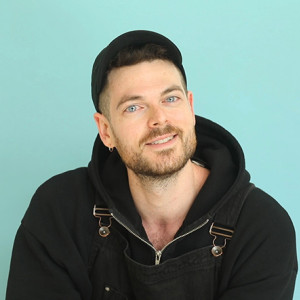My name is Adam, I'm an artist and author based in Brooklyn, New York. My illustrative work is rooted in honesty, humor and a little darkness – it's me, basically. I started out as more of a traditional graphic designer and over the last decade have now shifted mostly to my own projects. This work includes books and stationery, gifts and accessories, product collaborations, and anything else I can get into. A big part of what I do is about direct communication with people, whether that's through being open and honest on social media, or speaking candidly at design conferences and universities.
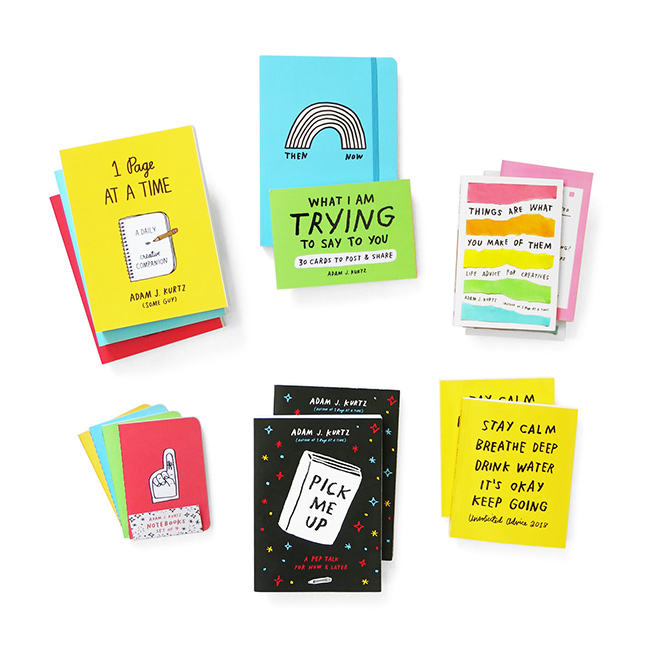
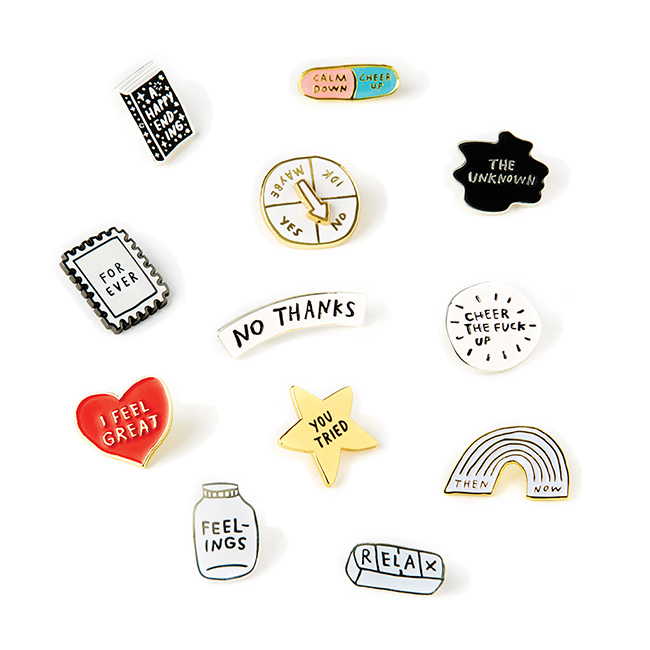
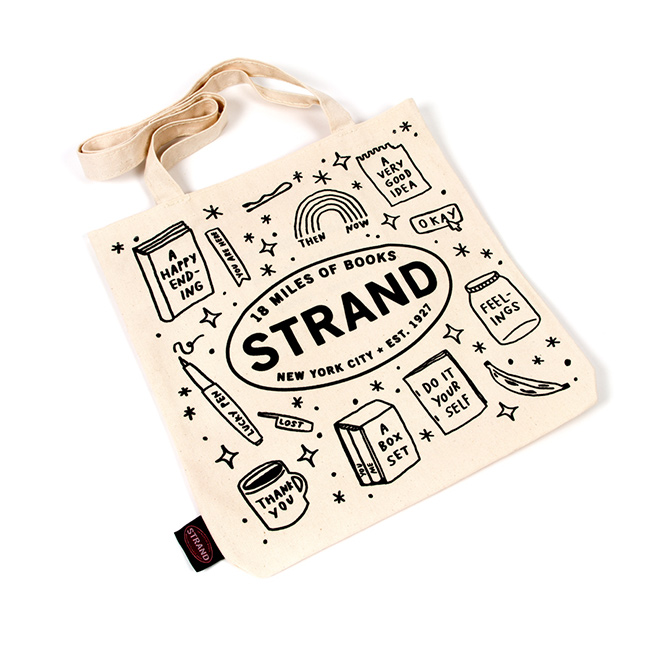
Please list 3 things that inspire you in Brookline. Where in the USA would you like to work?
For me moving to NYC was more about my personal life and the new opportunities I was looking for, like stronger LGBTQ and creative communities. I was low-key looking for a new boyfriend and I've since found, dated, and married him so mission accomplished!!!! Living in New York gives me access to experiences and institutions, whether I take part or not, the option is always nearby. It's also been great for meeting other creative friends in a similar position as I am, people who can relate to what I do and offer advice and guidance as we all navigate a sort of confusing space between art and business. But I really do feel like I could do what I do in a lot of places and spend a lot of time wondering about where else I might go next.
How did you come to idea of making interactive books? What is your main audience – children or adult people, do you have any assumptions?
I've created two interactive journals, once a bit more broad with daily pages, and one more directly focused on mental health, although both in friendly, funny ways. I had published two editions of my annual "Unsolicited Advice" weekly planner when an editor approached me about fleshing the same concept and style out into more of a book with a longer shelf life. Penguin basically pitched my own first book to me! Now it's taken on a life of its own in many languages and cultures. I think my books have their own audiences that are somewhat separate from my own. And my third book is a short essay collection which has another audience as well. The nice thing about books is they can go out there into the world and be discovered in their own time. A friend told me his mom and her friends all got copies of 1 Page at a Time to draw in together. And my Spanish publisher recently issued a "mini" edition of the same book that's targeted towards kids and removes some of the more existential tiny notes in favor of drawing prompts. In particular, a journal is always going to be whatever you put into it. It's more about a personality type than an age.
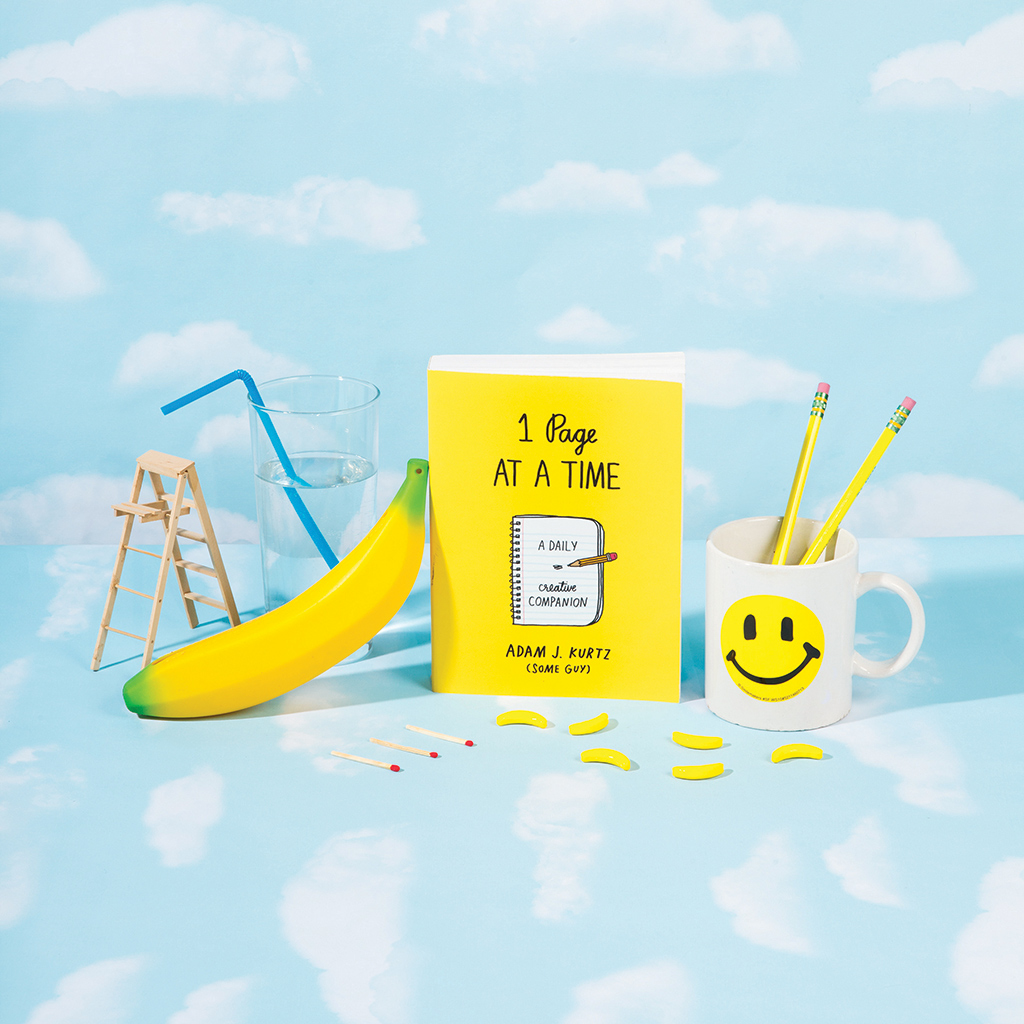
With your mixed activities, is it difficult to concentrate on a specific project? Do any project management tools or techniques help you?
I try to work on things that I'm excited about, and that's what keeps me focused. Not every part is as fun as the others, but if it's all in service of a bigger project I love, then I can power through. In general I write a lot of lists and email myself reminders. I hate having an unread email in my typically clean inbox (10 or less emails at all times if I can help it) so I'll let a reminder sit there unread and it will drive me crazy and I will get my tasks done so I can archive it.
What is your typical day? Is your daily routine strictly scheduled?
There's not really a routine and it can be stressful as a result. Typically I spend the morning packing up online shop orders so I can hit the post office and the coffee shop on the same morning walk. Leaving the apartment first thing in the morning helps me set my intention for the day, and when I return home to work (in our second bedroom home office) it's time to be focused. I'll work through whatever's on my plate, which can vary wildly. This year I did a lot of travel for various speaking, book events, vendor marketplaces, and other gigs. It was fun but really made it hard to stay on track at home. I didn't realize how much I value just being in one place.
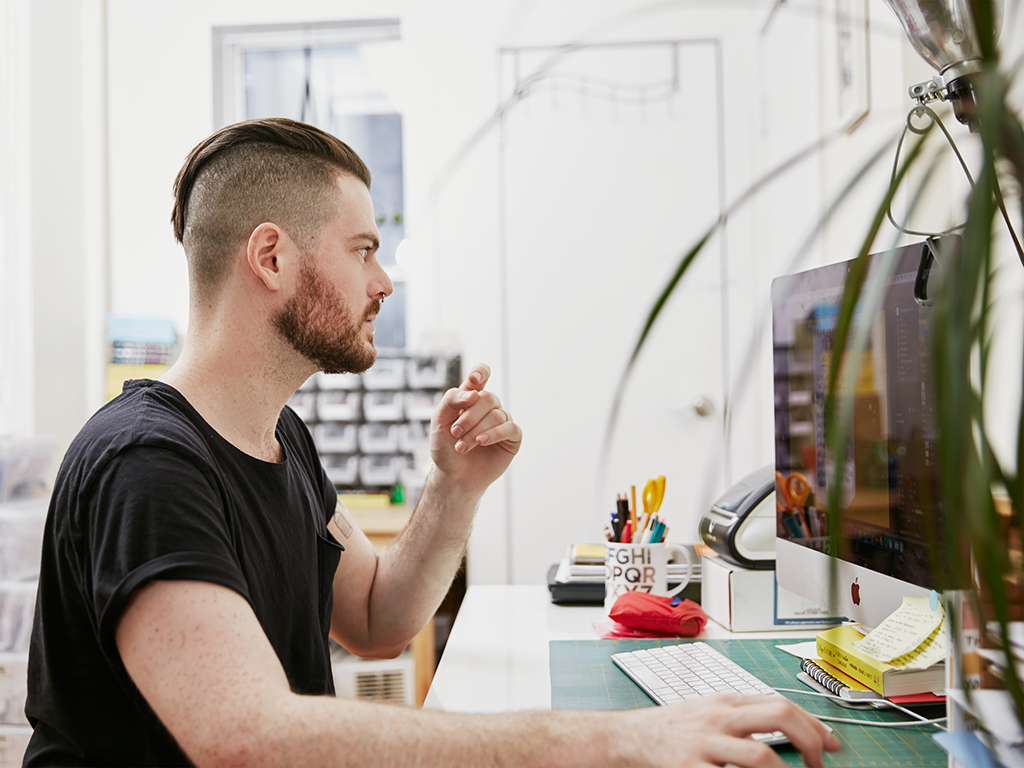
What tools are involved in books writing / illustrating? Could you share your typical/ favourite set of tools?
All I ever really use are pencils. Whatever I've got, usually a classic Musgrave pencil, nothing fancy. I scan everything into my computer with a fairly inexpensive scanner (Canon LIDE 220) and then tidy things up (but not too tidy) in Photoshop. I really like how the raw pencil texture looks and I feel like people can tell the difference, so I avoid digital pens and those kinds of tools. For me, the grit, the variance, and the slant of a letterform carries an intangible emotional weight that makes even the most saccharine sentiment a little more real.
